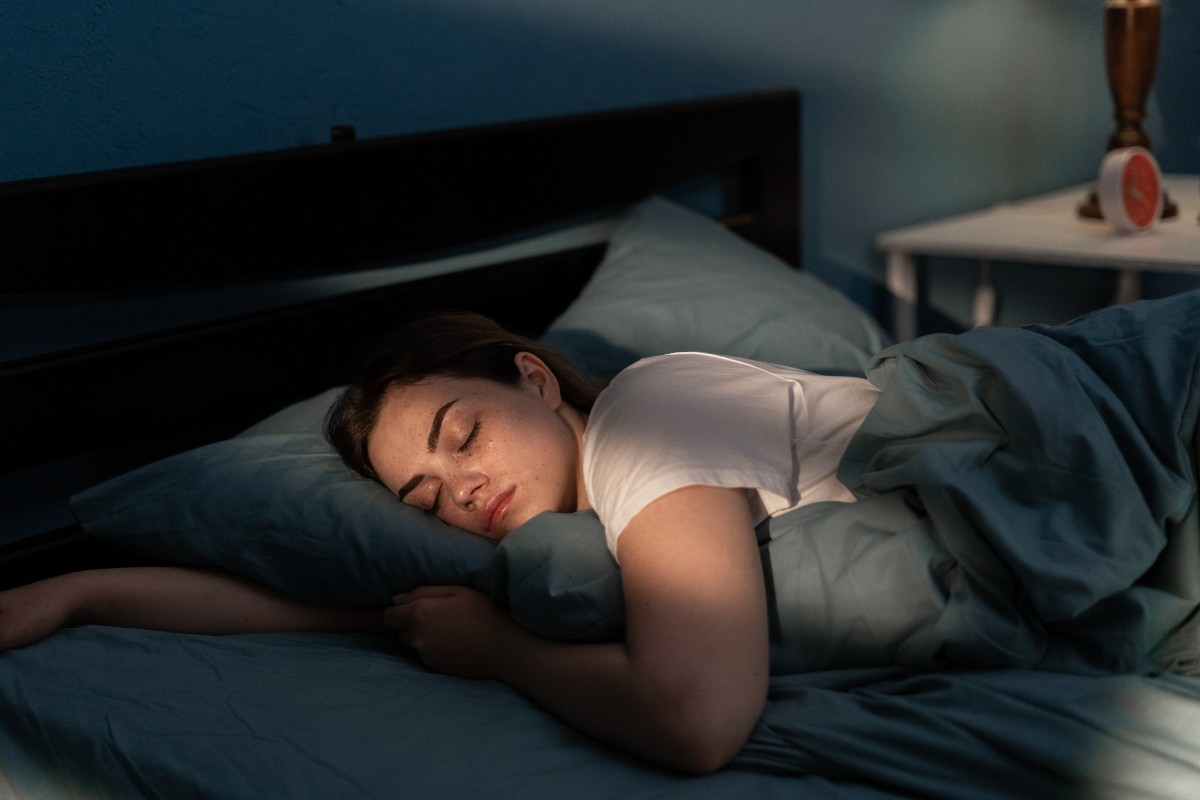Why Sleep Testing Westmead Is Becoming the Go-To Solution for Restless Nights
Understanding the Importance of Sleep
Sleep is a fundamental aspect of human health, playing a crucial role in physical and mental well-being. It is during sleep that the body undergoes essential processes such as tissue repair, muscle growth, and memory consolidation. Despite its significance, many individuals struggle to achieve restful sleep, leading to a myriad of health issues. The recommended amount of sleep varies by age, with adults typically needing between seven to nine hours per night. However, lifestyle factors such as stress, technology use, and irregular sleep schedules can drastically reduce sleep quality, making it imperative to prioritise good sleep hygiene.

In recent years, the awareness surrounding sleep disorders has grown, prompting a surge in the demand for effective solutions. Sleep testing has emerged as a pivotal method for diagnosing and treating various sleep-related problems, particularly in areas like Westmead, where healthcare facilities are increasingly equipped to handle such needs. These tests often involve monitoring brain waves, heart rate, and breathing patterns to provide a comprehensive overview of an individual’s sleep architecture, allowing healthcare professionals to tailor interventions that can significantly improve sleep quality.
The Consequences of Sleep Deprivation
Chronic sleep deprivation can lead to a range of health complications, including obesity, diabetes, cardiovascular diseases, and mental health disorders. The impact extends beyond physical health; it can also affect cognitive functions, leading to decreased productivity and impaired decision-making. Studies have shown that individuals who consistently lack adequate sleep are more prone to accidents and errors, underscoring the critical importance of prioritising rest in our increasingly busy lives. Furthermore, sleep deprivation can exacerbate existing health conditions, creating a vicious cycle that is difficult to break.
In conclusion, sleep testing Westmead is becoming an increasingly popular solution for those struggling with restless nights. With a combination of expert care, advanced technology, and a growing awareness of the importance of sleep, individuals can find effective solutions to their sleep issues. As the community embraces the significance of sleep health, the future looks bright for those seeking restful nights and improved well-being.
Moreover, the societal implications of widespread sleep issues are significant. As more people experience restless nights, the burden on healthcare systems increases, highlighting the urgent need for effective interventions like sleep testing. The economic costs associated with sleep deprivation are staggering, with lost productivity and increased healthcare expenses placing a strain on both individuals and society at large. Addressing sleep health not only benefits personal well-being but also contributes to a more productive and healthier workforce, making it a priority for public health initiatives and community awareness campaigns alike.
What Is Sleep Testing?
Sleep testing, also known as polysomnography, is a comprehensive evaluation of sleep patterns and behaviours. It involves monitoring various physiological parameters during sleep, such as brain activity, eye movements, heart rate, and breathing patterns. This data helps healthcare professionals identify specific sleep disorders, including sleep apnoea, insomnia, and restless leg syndrome.
In Westmead, sleep testing has become increasingly accessible, with numerous clinics offering state-of-the-art facilities. These clinics provide both in-lab sleep studies and at-home testing options, catering to the diverse needs of patients.
Types of Sleep Tests
There are several types of sleep tests, each tailored to diagnose different conditions. In-lab polysomnography is the most comprehensive, conducted in a controlled environment where various sensors monitor the patient’s sleep stages and physiological responses.
Alternatively, home sleep tests are less invasive and can be conducted in the comfort of one’s own home. These tests typically focus on monitoring breathing patterns and are ideal for individuals suspected of having sleep apnoea.
Why Choose Sleep Testing in Westmead?
The rise of sleep testing facilities in Westmead can be attributed to several factors. The area boasts a combination of advanced medical technology and highly trained professionals dedicated to improving sleep health. This convergence of resources makes Westmead a prime location for individuals seeking effective solutions for their sleep issues.
Furthermore, the local community has become increasingly aware of the importance of sleep health, leading to a greater willingness to seek help. This cultural shift has resulted in more individuals opting for sleep testing as a proactive measure to address their restless nights.
Expertise and Technology
Westmead is home to some of the leading sleep specialists in the country. These experts possess extensive knowledge of sleep disorders and are equipped with the latest technology to conduct accurate assessments. The combination of skilled professionals and advanced diagnostic tools ensures that patients receive the highest standard of care.
In addition to traditional sleep testing, many clinics in Westmead are exploring innovative technologies, such as wearable devices and mobile applications, to enhance the monitoring and management of sleep disorders. This forward-thinking approach further solidifies Westmead’s reputation as a hub for sleep health. Learn more about disorders at https://medlineplus.gov/mentaldisorders.html
The Process of Sleep Testing
Understanding the process of sleep testing can alleviate any concerns individuals may have about undergoing the procedure. Initially, a consultation with a sleep specialist is conducted to discuss symptoms and medical history. This assessment is crucial in determining the most appropriate testing method.
For in-lab testing, patients are typically asked to arrive at the clinic in the evening. Once settled, sensors are attached to various parts of the body to monitor sleep stages and physiological responses throughout the night. Patients can expect a comfortable environment, with trained staff available to assist them throughout the process.

At-Home Testing: A Convenient Option
For those who may feel apprehensive about sleeping in a clinical setting, at-home sleep testing offers a convenient alternative. Patients are provided with a portable monitoring device that they can use in their own bed. This method is particularly beneficial for individuals with busy lifestyles or those who may find it difficult to sleep in unfamiliar surroundings.
While at-home testing is less comprehensive than in-lab studies, it can still provide valuable insights into sleep patterns and breathing issues, making it a viable option for many.
Interpreting Sleep Test Results
Once the sleep test is completed, the data collected is analysed by a sleep specialist. The results will indicate whether a sleep disorder is present and, if so, the severity of the condition. Common diagnoses include obstructive sleep apnoea, central sleep apnoea, insomnia, and narcolepsy.
Understanding the results is crucial for effective treatment. The sleep specialist will discuss the findings with the patient, outlining potential treatment options tailored to their specific needs. This collaborative approach ensures that patients are actively involved in their care.
Common Treatment Options
Treatment for sleep disorders can vary widely depending on the diagnosis. For obstructive sleep apnoea, continuous positive airway pressure (CPAP) therapy is often recommended. This involves wearing a mask during sleep that delivers a steady stream of air, keeping the airways open.
For individuals with insomnia, cognitive behavioural therapy for insomnia (CBT-I) may be suggested. This therapeutic approach focuses on changing behaviours and thoughts that contribute to sleep difficulties. Additionally, lifestyle modifications, such as improving sleep hygiene and establishing a regular sleep schedule, can be beneficial. To read more about hygiene click here.
The Future of Sleep Health in Westmead
As awareness of sleep health continues to grow, the future of sleep testing in Westmead looks promising. Ongoing research and advancements in technology are likely to enhance the accuracy and accessibility of sleep diagnostics.
Moreover, community initiatives aimed at promoting sleep health are gaining traction. Educational programmes and workshops are being introduced to inform the public about the importance of sleep and the available resources for addressing sleep disorders.
Embracing a Holistic Approach
In the coming years, a more holistic approach to sleep health is expected to emerge. This includes integrating sleep testing with other aspects of health and wellness, such as nutrition and mental health. By recognising the interconnectedness of these factors, individuals can achieve a more comprehensive understanding of their overall well-being.
As Westmead continues to lead the way in sleep health, it is essential for individuals to take proactive steps towards improving their sleep. Seeking professional help through sleep testing can be the first step in reclaiming restful nights and enhancing overall quality of life.
Learn more on: Tired of Feeling Exhausted Here’s Why a Sleep Study Penrith May Help
